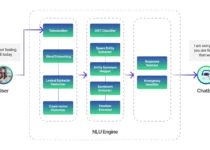Book Review: Managing Up
This is a review of the book Managing Up by Melody Wilding, and my commentary on how to apply the principles of managing your manager to everyday life in the corporate workplace.
Managing Up by Melody Wilding was recently published (March 4, 2025) and I read it as an audiobook. You can buy on Amazon here: Managing Up by Melody Wilding.
I was surprised that this book was published so recently when it is based on a phrase I’ve heard over the course of my career. I would estimate the first term I heard the phrase “managing up” in this context was in 2019. I was working at Getty Images and my manager explained the importance of managing your manager’s expectations of your work. It immediately made sense. I had already been doing this; I just didn’t have a word for it.
Managing up is an important skill if you want to grow in your career
“Managing up” is a useful skill for anyone who has a manager. When starting out in the workplace, employees typically do what they are asked to do, if they are bent on being successful. But over time, you begin to anticipate what you will be asked to do. You show initiative. You delightfully surprise your manager by demonstrating proficiency and earn trust so that you can work more independently and take on more responsibility.
Employees early in their career are learning to navigate corporate hierarchy. That typically means following top-down orders. But some of the most successful employees are those who use a bottoms-up approach. An employee who uses the “managing up” philosophy thinks about how they can manage their manager’s expectations.
Corporate managers are busy. Middle managers often have many direct reports, and sometimes they also have expectations to deliver as an individual contributor. They handle budgets, goals, forecasting, politicking, and more. Managing up is not only a great skill to have, it is becoming more essential in light of the fact that corporate people managers are stretched even further. As companies seek to shore up their bottom line and improve profitability, managers will have more direct reports, which means employees will have less guidance and coaching from their manager.


